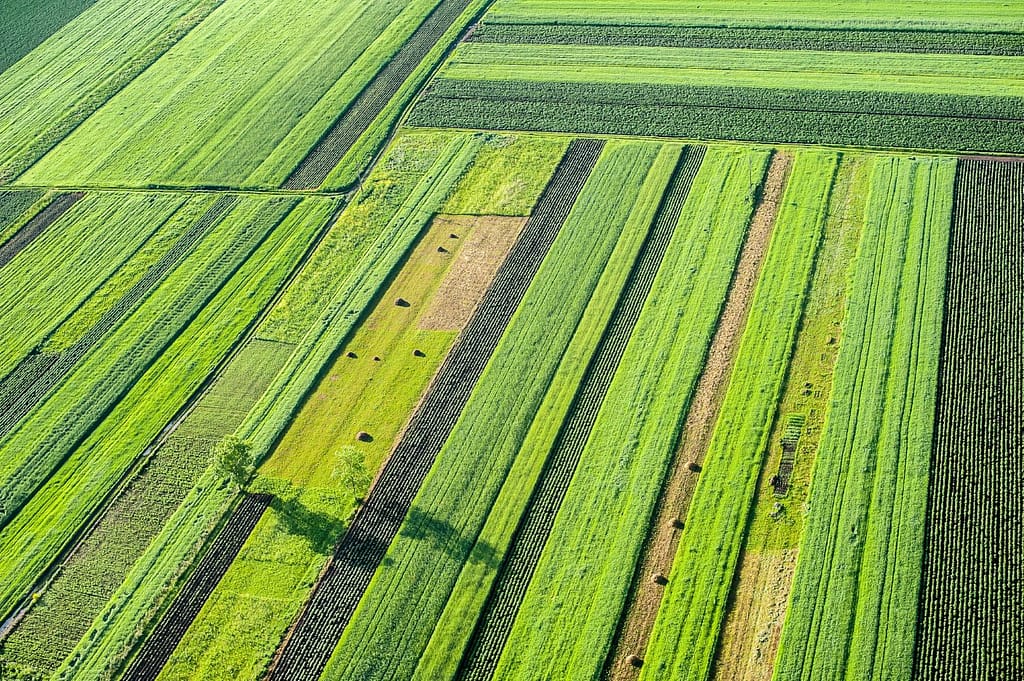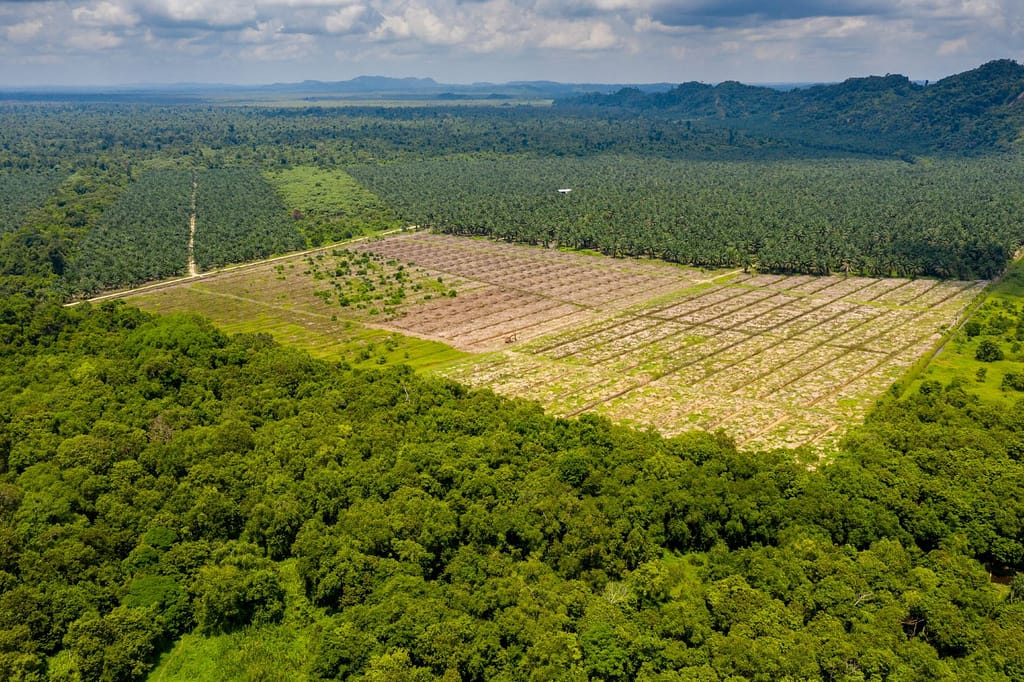Rethinking our relationship with nature
In industrialized societies, we often imagine the human and natural worlds as opposites: civilization versus wilderness, humanity versus wildlife, or technology versus nature. This perception has become so ingrained that nature can feel distant, something ‘out there,’ far from our urban environments. We find ourselves speaking of ‘reconnecting with’ or ‘stepping into’ nature as if we were apart from it.
But while we might think of nature as something separate, we are deeply, often invisibly, reliant on it. The air we breathe, the water we drink, and the food we rely on all come from intricate natural systems. Oxygen is produced through photosynthesis, while the carbon dioxide we exhale is absorbed by plants—maintaining a delicate balance essential to life. Our bodies, comprised of roughly 60% water, depend on healthy ecosystems for hydration and nutrition, as nutrients are passed from soil to plants and, ultimately, to humans.
Scientific research also underscores the connection between nature and human health. A 2019 study by the University of Exeter, for instance, found that spending just two hours a week in nature significantly improves mental well-being and reduces stress(1) Our survival and health are not just linked to nature—they are sustained by it.
From crop pollination vital for food production, and the cycling of the water to the regulation of the atmosphere and climate, nature underpins the systems that make life—and our economy—possible.

Nature underpins our economy and our survival
With over half of global GDP(2)($58tr)(3) moderately or highly dependent on nature, the health and stability of our economy is inextricably linked to the health and resilience of the biosphere. And yet we are depleting nature at an alarming rate. Croplands are rapidly expanding, and between 1970 and 2020 there has been a 73% decline in the average size of monitored wildlife populations. The dominant reason? Human food production. Industrial agriculture is the main driver of habitat degradation and ecosystem decline, using over 40% of the planet’s habitable land and 70% of its freshwater. Our food systems are illogical and unsustainable.
Meeting the growing demand for food in the coming decades cannot be achieved by simply continuing current production and consumption patterns. The agri-food sector is the world’s largest economic sector contributing up to 20% of total GDP, however, according to Nature Benchmark fewer than 1% of all companies understand the full extent of their dependency on the ‘ecosystem services’ nature provides. Expanding and intensifying agricultural practices at the same rate and in the same way as in recent years will deplete the very resources—such as healthy soils and clean water—that human beings depend on.

Navigating dependencies in a complex world
The complexity of global supply chains makes it difficult for companies to map how their operations rely on ecosystem services like pollination, water filtration, or healthy soils. However, this is a critical step because we are extracting too much from nature too fast for ecosystems to recover. Therefore, understanding these dependencies is also a question of environmental accountability and business resilience. Industries like agriculture, forestry, and fisheries are directly tied to natural systems, and the degradation of these ecosystems—whether from habitat destruction, climate change, or biodiversity loss—poses a direct threat to corporate viability in the long term.
Only 5% of companies understand how their business operations impact nature. While measuring environmental impacts is an essential step, it can frame the relationship between a business and nature as only external, suggesting the consequences are distant or indirect, something to worry about later. This alone rarely makes a strong economic case for action. In contrast, understanding dependencies takes an outside-in view, showing how deeply a business is intertwined with and reliant on nature. This creates a stronger economic incentive to protect ecosystems now. This is why the focus must shift from only measuring impacts to fully understanding dependencies and nature-related risks.

Going beyond compliance
Reporting frameworks such as the Corporate Sustainability Reporting Directive (CSRD) and Taskforce on Nature-Related Financial Disclosures (TNFD) have made strides in pushing companies to investigate and disclose both their impacts and dependencies. However, frameworks without voluntary long-term ambition-setting by companies are insufficient. The real challenge lies in whether companies will treat these frameworks as an endpoint or a stepping stone toward future-proof, resilient business models. There is ongoing debate about whether these measures will prompt companies to take the next step: developing more virtuous, forward-looking strategies that not only mitigate risks but actively contribute to ecosystem regeneration. Those who do will emerge as the pioneers of a new economic system—one that aligns business success with planetary health.
Mapping nature dependencies incentivizes action
Mapping dependencies on nature with granularity offers businesses a powerful incentive to act. When companies understand that their success depends on ecosystem services throughout their supply chains, sustainability stops being a regulatory box-ticking exercise and becomes a future-proofing must. Our work with companies through tools like Link and our Nature Navigation package enables them to identify where they are most vulnerable to environmental disruptions, helping them set ambitious but achievable targets.
For example, we’ve seen food companies that fully understand how dependent they are on pollinators start investing in practices that protect these services, ensuring stable yields and long-term success. On the manufacturing side, we’ve seen companies that map dependencies on raw materials start to anticipate future risks from resource scarcity enabling them to pursue alternative design strategies or identify secondary sources. We see these insights turn sustainability reporting from a burden into a competitive advantage, and they are critical to achieving global sustainability goals. These goals are not nice-to-haves, they are fundamental to achieving the long-term stability of our global economy and natural environment. The health of both is mutually dependent.

Financing change: a systems approach to nature-positive solutions
At Metabolic, we take a systems approach to addressing complex environmental challenges. We do this because we believe in acknowledging that many of these challenges are inextricably linked, and stem from a few key root causes. Solving problems without considering the broader context in which they exist can trigger knock-on effects elsewhere, and often leads to new, more severe, problems being created. By looking at entire systems—whether it is a supply chain, a city, or a bioregion—we can better understand where dependencies lie, where interventions will be most effective, and how different actors need to collaborate for lasting change.
Once a company has identified its dependencies on nature, it will undoubtedly look at the local level to identify the next steps. This is where systems thinking translates into strategy. Stimulating action in local contexts often requires a place-based transition approach to mobilize blended finance and empower noncompetitive collaboration between key actors. The recent Playbook for Place-Based Transition Funds outlines a systems-based approach that tailors climate transition portfolios across different sectors. The desired effect of implementing a place-based transition fund is to create scalable, systemic climate transition portfolios that align with local governance and community needs, attract diverse investments, and drive impactful decarbonization while promoting social equity and economic resilience at the regional level. Having this perspective on the ground will be vital for building strategies that are sensitive to local nuances.
Building a nature-positive economy
We are more closely tied to nature than we might think. Nature is not just a backdrop to our economy; it is its foundation. Every resource we rely on, from clean air and water to the materials that drive our industries, originates from natural ecosystems. Addressing our dependencies on nature is not only a necessity for resilience—it offers a pathway toward a nature-positive economy that supports human prosperity and the health of our planet.
By recognizing the deep interconnection between business and nature, companies have the opportunity to shift from being passive users of resources to active stewards of the ecosystems they depend on. This is more than just a strategy for compliance or risk management—it is about shaping a future where economic growth goes hand-in-hand with the restoration and protection of the natural world. In the end, our ability to thrive as a society is inseparable from the vitality of the ecosystems that sustain us. A nature-positive economy is not just a possibility—it is an imperative for the survival and well-being of future generations.
Metabolic at COP16: driving systemic change
As the global community comes together in Cali to push for the implementation of the Global Biodiversity Framework we aim to expand the conversation beyond mitigating impacts to understanding dependencies and crucially, acting on them.
In Cali, we will bring our systems thinking perspective to address ecosystem restoration, financing nature-positive solutions, Nature Science-Based Targets for cities, collaborative funding approaches, and regenerative agriculture.
We will also take stock of the 30 x 30 target to protect the oceans and unveil the latest research On Track or Off Course? Assessing Progress Toward the 30×30 Target for the Ocean, a joint initiative between Metabolic, Bloomberg Philanthropies Ocean Initiative, Campaign for Nature, Marine Conservation Institute, and Sky Truth.
Protecting and conserving at least 30% of the world’s ocean is vital to safeguard marine biodiversity and the billions of people who depend on it for their livelihoods and food security. It is also essential to preserving the ocean’s ability to act as our greatest climate ally by absorbing billions of tonnes of carbon emissions every year.
At Metabolic, we are committed to leading this transition, and we look forward to driving the conversation at COP16 and beyond.

Connect with us at COP16
At the Convention on Biological Diversity (COP16) in Cali, Colombia, Metabolic has been invited to showcase the real-world benefits companies are seeing by embedding nature into their core strategies. We will present findings that demonstrate how understanding dependencies on nature can lead to lower costs, greater resilience, and stronger leadership in the transition to a regenerative economy. By working with nature, not against it, businesses are gaining a strategic edge that goes beyond mere compliance. We will be showcasing how businesses can use data-driven tools like Link to integrate nature into their decision-making processes. Our Nature Navigation package is already helping agri-food businesses map their dependencies on ecosystem services, giving them the insights they need to mitigate risks and strengthen their supply chains.
For a full program of where we will be throughout the week visit the Metabolic at COP16 page.
References
- White, M.P., Alcock, I., Grellier, J. et al. Spending at least 120 minutes a week in nature is associated with good health and wellbeing. Sci Rep 9, 7730 (2019). https://doi.org/10.1038/s41598-019-44097-3.
- World Economic Forum, Half of World’s GDP Moderately or Highly Dependent on Nature, 2020.
- International Monetary Fund, Datamapper.
- Land Carbon Lab, Global Cropland Change.
- WWF (2024) Living Planet Report 2024 – A System in Peril. WWF, Gland, Switzerland.
- Gladek, E., Roemers, G., Sabag Muños, o., Kennedy, E., Fraser, M., Hersh, P., The Global Food System: An Analysis, 2017.
- World Benchmarking Alliance, Nature Benchmark, 2022-2024.
- United Nations, Kunming-Montreal Global Biodiversity Framework, 2022.




